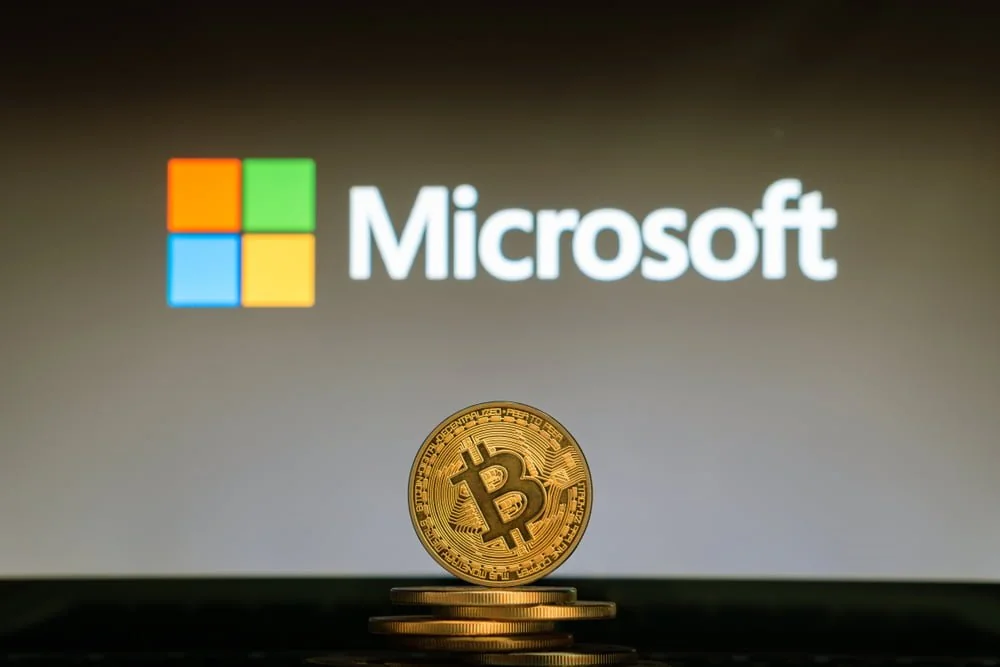Could Microsoft’s New Quantum Processor Pose a Risk to Bitcoin?
21.02.2025 19:00 2 min. read Alexander Stefanov
Microsoft introduced its latest quantum breakthrough, but could that pose a risk to Bitcoin’s security infrastructure?
The company’s progress with its Majorana 1 quantum chip, which operates using a new form of matter known as a topological superconductor, introduces the possibility of quantum computing undermining existing cryptographic systems. This breakthrough could compromise key Bitcoin protocols like SHA-256 and ECDSA, both essential for securing transactions.
Quantum computing’s ability to process vast amounts of data in a fraction of the time is nothing new, but the specific application of topological superconductors in Microsoft’s new chip could drastically reduce the time required to breach Bitcoin’s cryptography.
Bitcoin’s current security relies on SHA-256 and ECDSA, which depend on large computational effort to secure data. However, quantum computers could employ algorithms such as Grover’s and Shor’s to crack these systems more quickly than classical computers ever could, potentially exposing digital wallets and public keys to attack.
The risk comes from the way quantum systems manipulate subatomic particles, which could allow them to bypass traditional cryptographic barriers. Currently, brute-forcing Bitcoin’s cryptography would take an unfathomable amount of time for classical machines, but quantum computing could achieve the same result almost instantly. This makes Bitcoin wallets, including those holding billions of dollars in BTC, vulnerable to potential exploitation as quantum technology advances.
As discussions around securing Bitcoin from quantum threats grow, proposals for a quantum-resistant network are gaining traction. Researchers are exploring quantum-safe cryptography, with algorithms like CRYSTALS and Lamport signatures being considered for future implementation. Although consensus has not been reached on a solution, the urgency is clear as quantum technology continues to develop, demanding proactive measures to safeguard Bitcoin’s long-term viability.
-
1
Mysterious $8.6B Bitcoin Transfer Sparks Speculation Over Satoshi-Era Wealth
05.07.2025 15:00 3 min. read -
2
Veteran Trader Peter Brandt Shares Simple Wealth Strategy with Bitcoin at Its Core
30.06.2025 15:00 2 min. read -
3
Bitcoin Tops Crypto Social Buzz as $110,000 Milestone Fuels Market Debate
04.07.2025 8:15 3 min. read -
4
UniCredit to Launch Structured Product Tied to BlackRock’s Spot Bitcoin ETF
01.07.2025 17:53 1 min. read -
5
10,000 Dormant Bitcoin Moved After 14 Years: Volatility Ahead?
04.07.2025 20:00 2 min. read
UK to Sell Almost $7B in Seized Bitcoin as Treasury Eyes Crypto Boost
The United Kingdom’s Home Office is preparing to liquidate a massive cache of seized cryptocurrency—at least $7 billion worth of Bitcoin—according to a new report by The Telegraph.
Crypto’s Top Narratives in Focus, According to AI
A fresh breakdown from CoinMarketCap’s AI-powered narrative tracker reveals the four most influential crypto trends currently shaping the market: BTCFi & DePIN, U.S. regulatory breakthroughs, AI agent economies, and real-world asset (RWA) tokenization.
Strategy’s $71B in Bitcoin Now Ranks Among Top 10 S&P 500 Treasuries
Seems like Strategy has officially broken into the top 10 S&P 500 corporate treasuries with its massive $71 billion in Bitcoin holdings—ranking 9th overall and leapfrogging major firms like Exxon, NVIDIA, and PayPal.
How Much Bitcoin You’ll Need to Retire in 2035
A new chart analysis offers a striking projection: how much Bitcoin one would need to retire comfortably by 2035 in different countries—assuming continued BTC price appreciation and 7% inflation adjustment.
-
1
Mysterious $8.6B Bitcoin Transfer Sparks Speculation Over Satoshi-Era Wealth
05.07.2025 15:00 3 min. read -
2
Veteran Trader Peter Brandt Shares Simple Wealth Strategy with Bitcoin at Its Core
30.06.2025 15:00 2 min. read -
3
Bitcoin Tops Crypto Social Buzz as $110,000 Milestone Fuels Market Debate
04.07.2025 8:15 3 min. read -
4
UniCredit to Launch Structured Product Tied to BlackRock’s Spot Bitcoin ETF
01.07.2025 17:53 1 min. read -
5
10,000 Dormant Bitcoin Moved After 14 Years: Volatility Ahead?
04.07.2025 20:00 2 min. read


